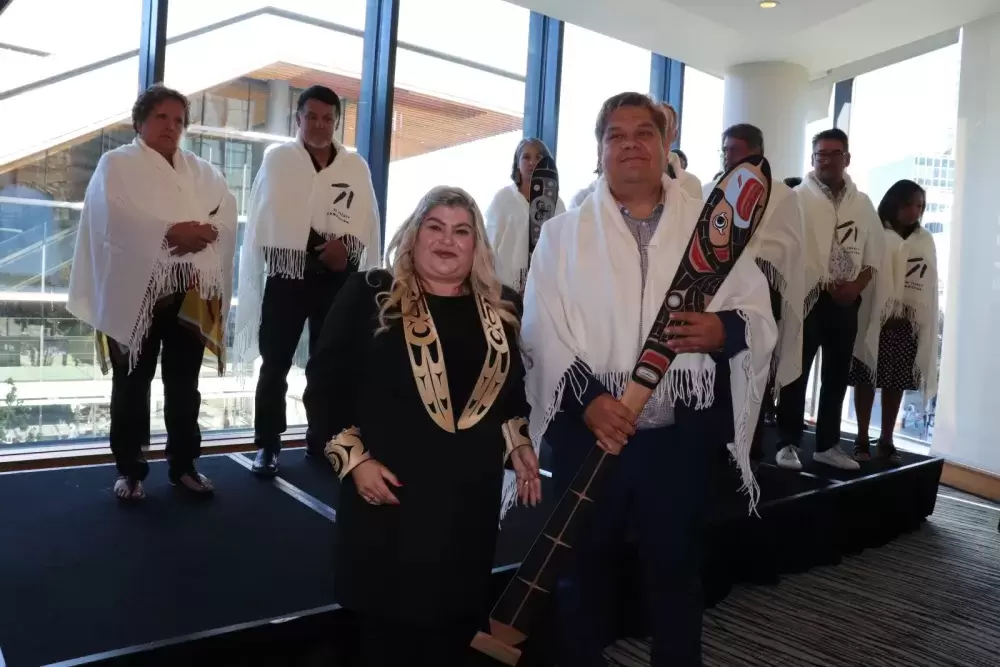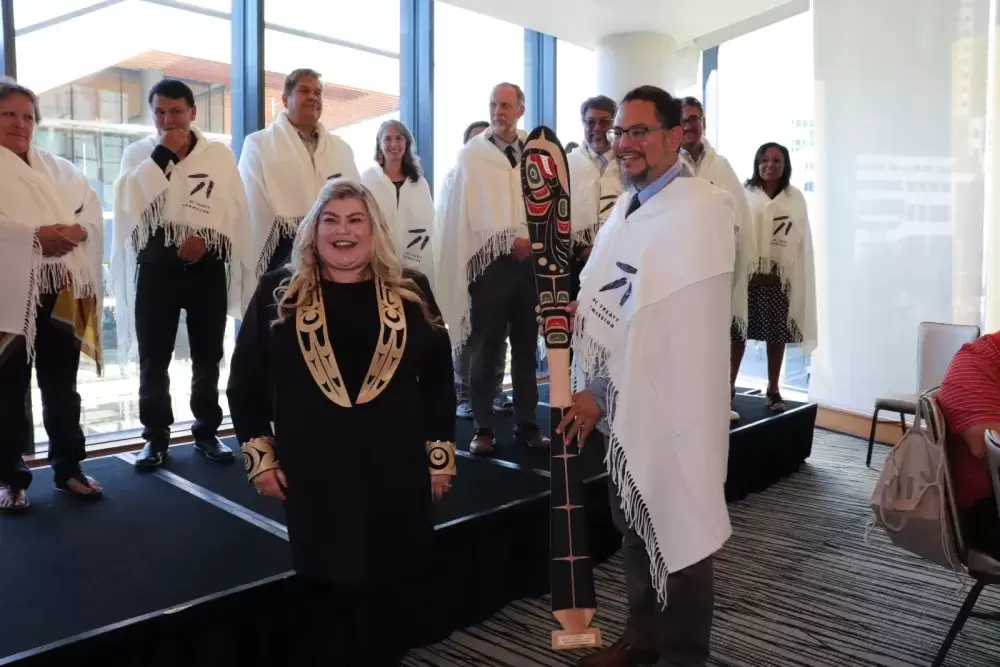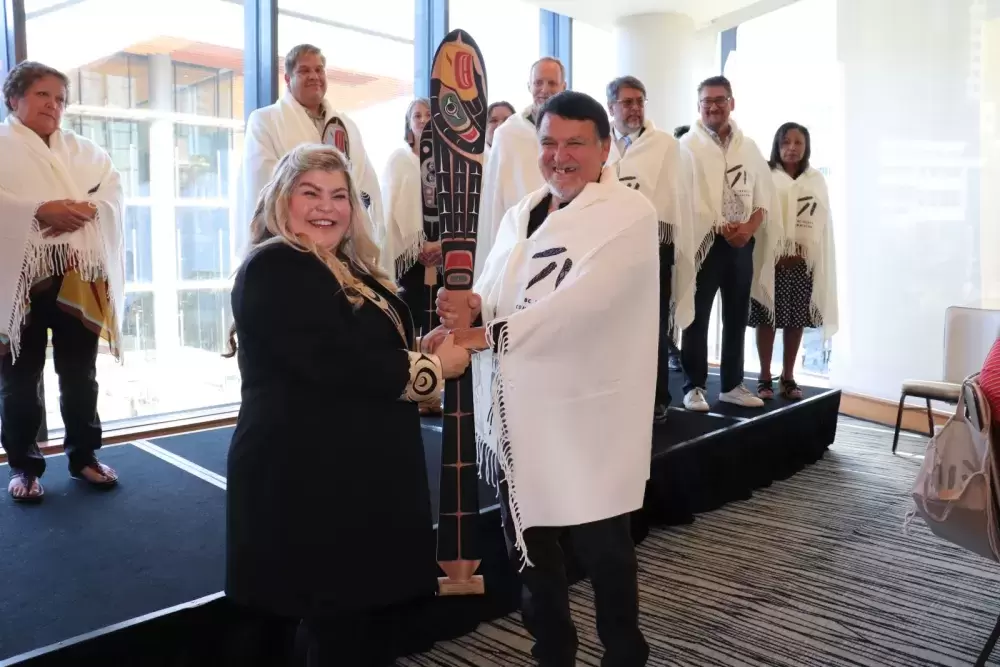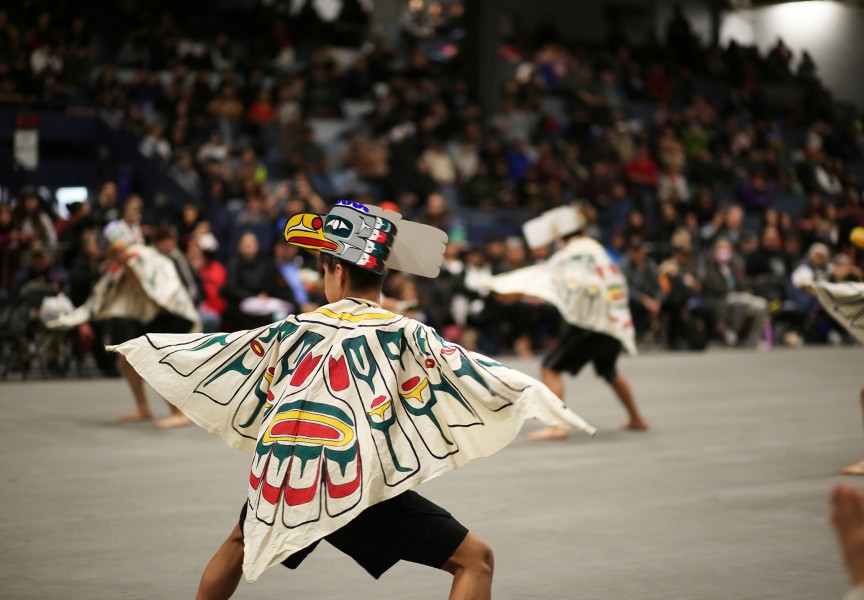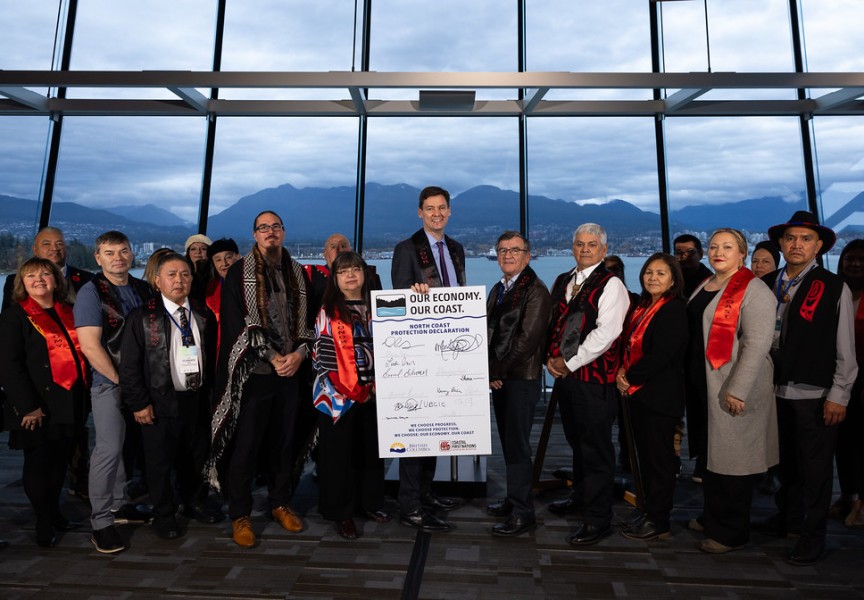The Emerald Room of the Fairmont Pacific Rim Hotel in downtown Vancouver was packed with treaty teams from First Nations as well as the federal and provincial governments as the BCTC marked 30 years of treaty-making in the province.
The B.C. Treaty Commission’s mandate is to be the independent facilitator of negotiations amongst First Nations in B.C., the Government of Canada and the Province of British Columbia. They allocate support funding to enable First Nation participation in the negotiations and provide public information and education about the treaty process.
In their negotiation update, the BCTC said that the B.C. treaty negotiations process is voluntary and open to all First Nations in British Columbia. Since the beginning of the modern-day treaty process, there have been 65 self-determining First Nations that have entered, participated in, or have completed treaties through the negotiations process.
BCTC goes on to say that active or completed negotiations involve 39 self-determining First Nations, representing 72 current or former Indian Act bands, totaling 36 per cent of all Indian Act bands in B.C. For statistical purposes, the Treaty Commission continues to refer to “Indian Act bands” to provide a common reference point.
According to Statista, there were 199 Indian Act bands in British Columbia, the highest number of all the provinces in Canada, before the modern-day treaty process. Eight of those have achieved modern day treaties with a few more nearing final stages of treaty negotiation.
On Sept 21, the BCTC celebrated B.C. modern treaties by marking the 30th anniversary of the signing of the BCTC Agreement.
In a written statement, Premier John Horgan congratulated the B.C. Treaty Commission and all participants on their successes.
“I honour and acknowledge the courage and dedication of our treaty partners: the Tla’amin Nation, Tsawwassen First Nation, Maa-nulth Treaty Nations (Huu-ay-aht First Nations, Ka:’yu:’k’t’h’/Che:k:tles7et’h’ First Nations, Toquaht Nation, Uchucklesaht Tribe, and Yuułuʔiłʔatḥ Government) and Nisga’a Nation,” he stated.
In his opening comments, Howard Grant of Musqueam spoke of the growth and revival of culture and language through reconciliation efforts.
“Thirty years ago, we embarked on the road to modern-day treaties. At that time, we said we’d be done in 10 years,” he chuckled, noting there were several heads of silver hair in the room. “Today, we look to the successes of those that have achieved treaty.”
Grant noted that the government push for modern-day treaties came as a result of First Nations’ successes in landmark court cases.
“Delgamuukw, Tsilhqot’in, Sparrow, is what brought us to modern day treaties,” he added.
Stephen Point, a former lieutenant governor of B.C. and chief commissioner with the treaty commission, also congratulated BCTC for reaching many milestones. He recalled facing media questions at the 1992 BCTC Agreement signing.
“She (a reporter) was asking, ‘Why are you Indians so upset? Why are you still fighting? We’ve treated you so well, we haven’t killed you all’,” Point shared.
Sadly, said Point, that attitude still exists for some.
“We’ve seen international recognition of our rights to self-governance,” he noted.
Edward John recalled that many First Nations left the treaty negotiation table, concerned about the mounting debt. At that time, First Nations had to borrow money in order to engage in treaty negotiations with BC and Canada.
“Perry Bellegarde met with the Prime Minister to talk about loan forgiveness…we shouldn’t have to pay to negotiate our inherent rights,” said John.
Two years after that meeting those loans were forgiven or reimbursed to the tune of $1.4 billion.
“Since 2017, First Nations, Canada and B.C. have been exploring flexible approaches, better suited to addressing the needs of the individual nations, and we have shifted the concept of ‘final agreements’ to allow room to grow and change over time,” said Premier Horgan. “Together, we have built a shared decision-making chapter in treaties that implements the goals of the declaration act on the rights of Indigenous peoples and the United Nations declaration, and we will be closing some treaties shortly.”
Former B.C. premier Mike Harcourt (1991-1996) said he was honored to be there in 1992 with former prime minister Brian Mulroney at the signing of the BCTC Agreement.
“It is most important to build respectful, new relationships,” he said, adding that the time had come that the province could no longer deny responsibility by clinging to the belief that Indigenous matters were solely a federal responsibility.
He recalled the early days when he worked with Indigenous leaders Sophie Pierre, Joe Matthias, George Watts, Miles Richardson and Ed John. And he acknowledged the successes that came after decades of work from all parties.
“Forty years later we have self-governing First Nations who are economically self-sufficient, their cultures almost destroyed are brought back,” said Harcourt. “I’m proud to witness this wonderfully positive experience.”
“We are becoming who we should have been,” said Huu-ay-aht Councillor John Jack, adding that now, they have the ability to create the change that is needed.
The BCTC blanketed honored guests and offered lunch and dinner as guests swapped stories about the early days of treaty negotiations.

